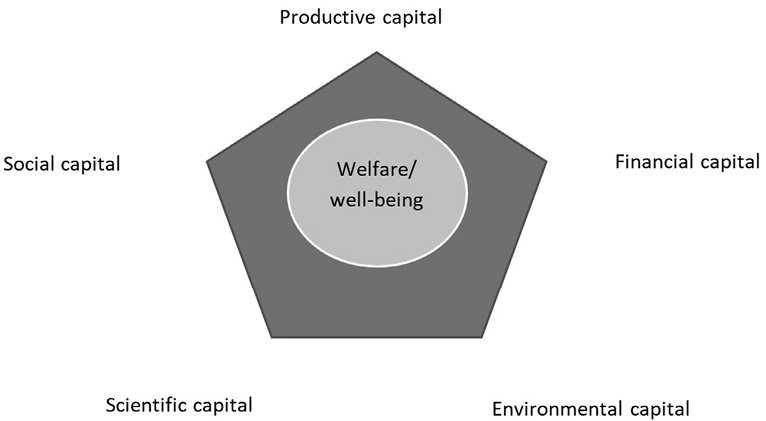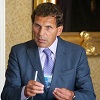Hello Visitor! Log In
Ukraine: A Post-War Phoenix Perspective
ARTICLE | June 20, 2022 | BY Peter Nijkamp, Karima Kourtit, Gabriela Pascariu
Author(s)
Peter Nijkamp
Karima Kourtit
Gabriela Pascariu
Abstract
This paper argues that science has not been very successful in preventing wars between nations, but may play a significant role in re-building a country or region after devastations from a military conflict. This is illustrated by the case of Ukraine. The specific potential contribution of regional science to the country’s recovery process is highlighted (a ‘phoenix perspective’).
1. Territorial Conflicts and the Role of Science
"The lack of convincing scientific principles and of effective and accepted solution mechanisms for conflict management leads to a vulnerable global space-economy."
The Russian invasion in Ukraine is a clear case of violation of international law, as was clearly stipulated in the recent statement of the World Academy of Art & Science on ‘A Time of Solidarity!’ (March 2, 2022). Unfortunately, such cases have been occurring time and again in the history of mankind. Geopolitical conflicts are apparently inherent in the development of civilisation. These conflicts emerge if political leaders in a given country rigorously seek to exercise power over a certain contested territory. It is noteworthy that in the civil law of most countries the ownership of land in a given area is normally unambiguously and legally specified and also included in detailed cadastral systems. But such cadastral systems do not exist between countries, and so, territorial property rights are often a source of dispute. And consequently, an act of war may be the result of ill-defined ownership rights for contested territories (or international waters).
The ongoing conflicts between Greece and Turkey, Israel and the Palestinian nation, or Japan and China, to mention a few, illustrate that property and use rights of territories are not well anchored in mutually accepted agreements, and may in the worst case prompt violent attacks. Despite an abundance of scientific literature, there is not a binding logical system for balanced conflict resolution among nations. And the United Nations is usually not capable of imposing mandatory and effective means for achieving a peaceful outcome. The lack of convincing scientific principles and of effective and accepted solution mechanisms for conflict management leads to a vulnerable global space-economy, as testified by the Ukrainian case.
2. Territorial Borders and the Role of Science
The observations made in the first section do not only induce questions on legal territorial ownership, but prompt also a complementary question, namely on the meaning of territorial borders. Clearly, there is no nation or region without borders, but there is also no border without a demarcated nation or region. In many cases, borders are a fuzzy construct and do not reflect an undisputed demarcation line. Borders may be the result of multiple—often historical—factors, for instance, physical geography (e.g. rivers, lakes, mountains), historical developments, culture, socio-economic conditions, language differences etc. Unfortunately, borders are often the result of military conflicts. But borders may also be based on explicit human or political decisions, such as the peaceful separation of Czechoslovakia into the Czech Republic and Slovakia.
There is a wealth of literature on borders—both their origins and their effects—and many studies have made a scientific attempt to classify borders in a rational or logical way, for instance, through functional, administrative or democratic criteria or procedures. And several disciplines, e.g. political science, sociology, political geography, international law or economics, have formulated scientific principles for borderline issues. Unfortunately, these often well thought ideas have not been followed in practice. At best, they are used for getting a better understanding of the complexity of border tensions or conflicts. Even the science of conflict management has not been very successful in mitigating or resolving military conflicts between two adjacent areas. What can science do, if it fails to develop accepted solution trajectories for war conflicts like in Ukraine?
3. Setting the Scene
Over the past decades, a wealth of literature has been published on shocks in dynamic systems, for instance, catastrophe theory, bifurcation theory or chaos theory. More recently, the attention has shifted to the analysis of recovery patterns after the occurrence of a shock or disruption (e.g., earthquakes, floods, wars). Much emphasis has been placed on these studies on the question whether and how an equilibrium state can be achieved, either the original state or a new balance. This has over the past few years led to a broad interest in vulnerability analysis and in particular resilience analysis. Resilience is interpreted as the capability of a dynamic system—once it is brought out of equilibrium as a result of a systemic perturbation—to reach again either the original equilibrium or to achieve a new equilibrium. Very recently, the notion of prosilience has been introduced to indicate that after a shock, through pro-active strategies and active interventions a positive system jump can be realised that puts the system concerned in a much better position on its performance ladder, as compared to its initial position. An avalanche of scientific studies has been produced to conceptualise and operationalise resilient trajectories for dynamic systems that were brought out of equilibrium as a result of a shock, e.g., in biology, psychology, political science, geography and economics. It seems therefore, pertinent to explore whether the resilience concept is a useful vehicle for understanding and implementing the painful recovery process of the Ukrainian nation in a post-war situation. We will address in particular the potential offered by regional science, as a multidisciplinary approach to the analysis of regions, cities, environment and infrastructure.
After the Great Recession (2008-2012), the Migration Crisis (2012-2020) and the COVID-19 Pandemic (2020-2022), our world has rather unexpectedly faced a fourth shock, viz. the Russian invasion in Ukraine. This is not only a violation of a nation’s integrity, but also means an unprecedented human tragedy and suffering. During the previous three shocks mentioned above, regional scientists all over the world played a very active role in acquiring and disseminating evidence-based knowledge on the backgrounds, consequences and policy implications of the perturbations related to the Great Recession, the Migration Crisis and the Pandemic. And the regional science literature has been enriched with numerous advanced publications. So regional science has been rather alert and successful in coping with new challenges.
At the EURINT conference—held very recently (June 20-21, 2022) at the Center for European Studies, Iasi, Romania (close to the Moldavian and Ukraine border)—the alarming war situation was extensively discussed. We were very fortunate with the (online) participation of several Ukrainian regional science colleagues. During this EURINT conference, the plan was launched to offer to our regional science colleagues in Ukraine positive support during the geo-political conflict and to provide them with all scientific assistance that they would need during and after the crisis situation. This has been formulated in a jointly accepted Declaration by the EURINT conference participants (see Appendix).
4. Regional Science in Support of Ukraine
As argued above, solid regional science analysis—comprising expertise from regional and urban economics, economic and social geography and geoscience, and spatial planning (including transportation, infrastructure, environment and energy issues)—is instrumental in the necessary rehabilitation process of post-war Ukraine. Before sketching out concrete contours of a regional science assistance programme, it is useful to frame the type of knowledge and research that may be needed to re-build the country. Spatial (regional, urban and infrastructural) and socioeconomic development is the result of forces that shape the welfare and well-being of people. Based on previously tested research, we postulate that five key factors are responsible for structural and sustainable development of places: (i) productive capital (e.g. industry, factories, offices); (ii) financial capital (e.g. access to financial markets); (iii) social capital (e.g. presence of cooperative interactive networks); (iv) environmental capital (e.g. quality-of-life conditions); and (v) scientific capital (e.g. advanced research, access to modern digital technology tools). Clearly, these five factors are mutually dependent and may reinforce each other. They may be depicted in an often used so-called Pentagon model (see Figure 1).
We note that in particular scientific capital—with a high degree of accessible knowledge—is a catalyst for the other four Pentagon factors. And therefore, it is necessary that in the reconstruction phase of the Ukrainian space-economy a major endeavour is pursued to provide a solid underpinning of reconstruction plans, based on the most advanced state of the art in science. Since any reconstruction plan of the devastated regional, urban and infrastructural system in Ukraine will have spatial implications, appropriate and effective use of intellectual resources in this field is needed. In the next section we will suggest several ways in which understanding regional science can support sustainable development of the Ukrainian space-economy.

5. A Plan for Regional Science Support Activities
Starting from the effective potential of scientific capital, regional science can provide scholarly support to the reconstruction of Ukrainian cities and regions in three ways: A – Education and Training; B – Research and Capacity Building; C – Internationalisation and Knowledge Exchange. The concrete elements of these three successive building blocks for a regional science support plan for Ukraine can be briefly summarised as follows.
A. Education and Training
- Short courses on modern regional science theory and methods for master’s and Ph.D. students in Ukraine.
- Practical training courses for professionals/practitioners, e.g., on public administration principles, procurement procedures, grant proposals, European project management, etc.
- Advanced course for regional science academics in Ukraine.
- Thematic training/support for staff from regional development agencies, cross-border cooperation agencies, etc.
B. Research and Capacity Building
- Cooperative research projects on infrastructure/built environment/public facilities/environmental issues/spatial modelling of disruptions, etc.
- Twinning publication projects with one or more Ukrainian regional science scholars.
- Adoption plan for young Ukrainian regional scientists in ongoing or emerging research projects elsewhere or for a visiting scholarship, research internships, mobility exchange programmes, etc.
- Support for curriculum development for undergraduate/master/training programs in areas associated with regional science.
C. Internationalisation and Knowledge Exchange
- Involvement of Ukrainian regional scientists in ongoing regional science activities and/or committees, supported by digital tools.
- Participation of Ukrainian research in international workshops and conferences.
- Organisation of an international symposium on post-war Ukrainian regional and urban development, in cooperation with major international academic organisations.
- Creation of Centres of Excellence in regional science, in Ukraine, with the support of other universities elsewhere.
It goes without saying that it is the responsibility of Ukrainian regional scientists to articulate their needs for scientific support.
6. A ‘Regional Science Marshall Plan’ for Ukraine
The redevelopment of regions and cities in Ukraine is more than a re-building of the built environment; it requires a strategic vision on the spatial constellation of the country in the future, seen from the opportunities offered by its space-economy. It requires a well thought strategy that has to be developed and implemented in the very short run. Clearly, the choice for any new spatial development of the country is a political responsibility of the Ukrainian people. It may be implemented from the perspective of a proresilience strategy. But as a sign of solidarity regional scientists all over the world are reaching out to Ukraine to offer all assistance needed by their colleagues. Such a massive mobilisation of relevant regional science knowledge in support of Ukrainian academics and professionals may almost take the form of ‘Regional Science Marshall Plan’. This ambitious plan supported by many colleagues all over the world intends to help the country and also to provide signs of hope in this depressing period. It offers cornerstones for a ‘phoenix’ miracle.
Bibliography
- Aroca, P., Kourtit, K., Nijkamp, P. and Stough, R. (2021), Prosilience Trajectories of Phoenix Regions: A Narrative on Intelligent Transformation of Old Mining Areas, Eastern Journal of European Studies, 12, 76-98.
- Bănică, B., Mihail, E., Iațu, C., Nijkamp, P. Carmen Pascariu, G. (eds.) (2021), The European Atlas of Resilience, Editura Universitatii AL I Cuza, Iasi.
- Holling, C.S. (1996), Engineering Resilience versus Ecological Resilience, Engineering within Ecological Constraints, 31, 32.
- Holling, C.S. (1973), Resilience and Stability of Ecological Systems, Annual Review of Ecology and Systematics, 4(1), 1-23.
- Martin R. L. (2012), Regional Economic Resilience, Hysteresis and Recessionary Shocks, Journal of Economic Geography 12, 1–32, https://doi.org/10.1093/jeg/lbr019
- Nijkamp, P. (2021), Borders as Opportunities in the Space-economy: Towards a Theory of Enabling Space, Asia-Pacific Journal of Regional Science, 5, 223-239, https://doi.org/10.1007/s41685-021-00191-x.
- Nijkamp, P., Reggiani, A. (1992). Spatial Interaction Models and Chaos Theory. In: Interaction, Evolution and Chaos in Space, Springer, Berlin, Heidelberg. https://doi.org/10.1007/978-3-642-77509-3_7.
Appendix
Declaration
A REGIONAL SCIENCE ‘MARSHALL PLAN’ FOR UKRAINE
- Regional science is concerned with sustainable spatial development of territories (cities, regions) in our world, in the spirit of the UN SDGs.
- Regional science has developed a multidisciplinary scientific toolbox that has proven its validity and applicability all over the world, in cooperation with planners, economists, geographers, social scientists, transportation experts and environmental scientists.
- Regional science is able to support capacity building in the recovery process of devastated territories and areas during the post-war period in Ukraine, as well as immediate scientific knowledge transfer and practical support whenever needed.
- Capacity building comprises education and training of regional scientists, as well as structural science and research collaboration in all fields of the Ukrainian space-economy where regional science expertise and assistance is needed.
- Given the urgent need for direct international scientific support in rehabilitating, in the short run, the regions and cities in Ukraine, regional scientists are prepared to help Ukrainian colleagues and practitioners with solid and practical advice on viable ways for creating sustainable spatial development.
- Such a global support plan for Ukraine should not only be based on traditional physical planning methods and techniques, but should also be based on advanced digital technology and modern geoscience techniques (e.g., big data, machine learning, digital twins), as well as advanced spatial modelling.
- Several scientific institutions and professional organisations (e.g., The Regional Science Academy) have already expressed their willingness to mobilise intellectual resources in support of Ukrainian colleagues and professionals. To that end a broadly composed elicitation workshop (preferably in a safe zone in Ukraine) is planned in the near future, so as to bring supply and demand in that field of regional science together. It is foreseen that the results of this gathering will be broadly communicated to the international scientific community. This will herald the start of a REGIONAL SCIENCE ‘MARSHALL PLAN’ FOR UKRAINE.



